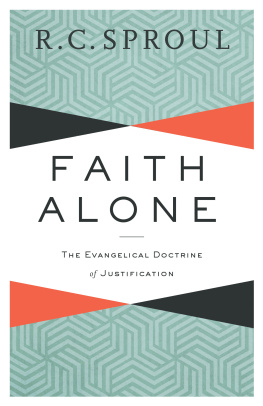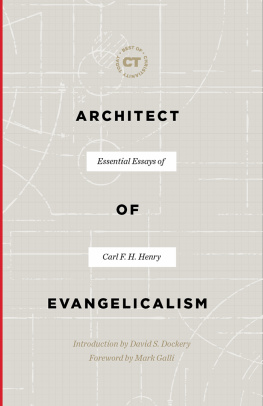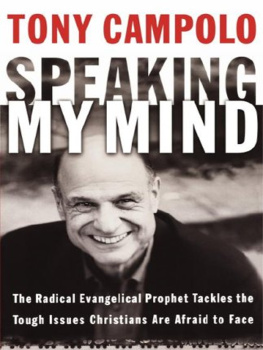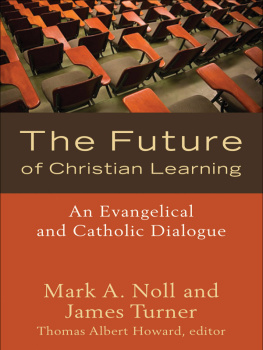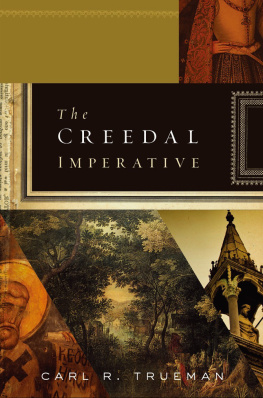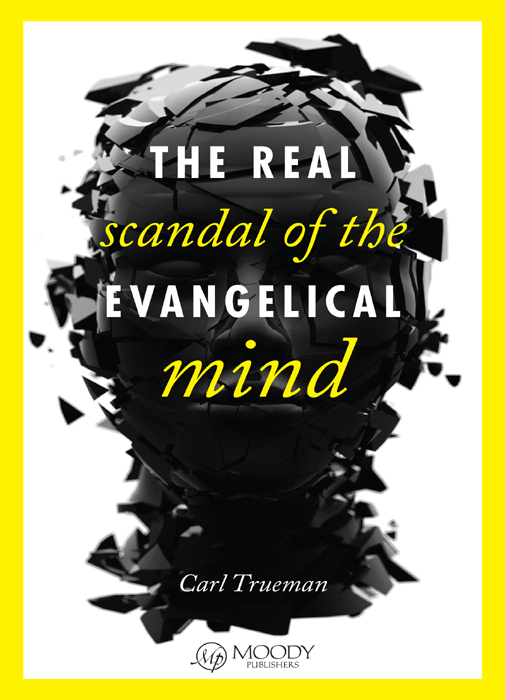Praises for
The Real Scandal of the Evangelical Mind
What is the state of the evangelical mind? Carl Trueman intends to reshape that entire question, and he does so by questioning the very existence of evangelicalism. In this clever book, Trueman forces us all to think about the most basic issues of evangelical identity, integrity, and credibility. This work comes from a first-rate evangelical scholar. Read it at your own risk.
R. Albert Mhler Jr.
President and Joseph Emerson Brown
Professor of Christian Theology
The Southern Baptist Theological Seminary
Professor Trueman offers a clear and sober assessment of contemporary evangelicalism and how its doctrinal neglect as well as its ecclesial and institutional practices continue to sever its intellectual and moral life from its biblical and theological roots. As a Catholic, I part ways with Professor Trueman on several doctrinal questions. But when it comes to our common heritage as Christiansand our shared understanding of the good, the true, and the beautifulI stand with him against a spirit of the age that will not rest until all the vestiges of Christian civilization are vanquished from the face of the Earth.
What is truly tragicas Professor Trueman forcefully arguesis that some who claim to be allies of that civilization, as well as friends of all things evangelical, embrace and propagate ideas that aid and abet its destruction. Although he may not agree with me on this, perhaps it is time for evangelicals (as well as Catholics) to consider what Alasdair MacIntyre has called the Benedict Option.
F RANCIS J. B ECKWITH
Professor of Philosophy and Church-State Studies
Baylor University
THE REAL
scandal of the
EVANGELICAL
mind
Carl R. Trueman
MOODY PUBLISHERS
CHICAGO
2011 by
C ARL R. T RUEMAN
All rights reserved. No part of this book may be reproduced in any form without permission in writing from the publisher, except in the case of brief quotations embodied in critical articles or reviews.
Edited by Jim Vincent
Interior design: Smartt Guys design
Cover design: Kathryn Joachim
Cover image: iStock Photo morkeman #1716869
ISBN: 978-0-8024-7815-3
We hope you enjoy this e-book from Moody Publishers. Our goal is to provide high-quality, thought-provoking books and products that connect truth to your real needs and challenges. For more information on other books and products written and produced from a biblical perspective, go to www.moodypublishers.com or write to:
Moody Publishers
820 N. LaSalle Boulevard
Chicago, IL 60610
13579 10 8642
Printed in the United States of America
F irst, I would like to thank Madison Trammel of Moody Publishers for having the idea for this e-booklet and then commissioning me to write it.
In addition, I am as always indebted to good friends who were willing to read my material in draft form and offer constructive criticism and advice. In this case, both the Rev. Todd Pruitt, senior pastor of Church of the Savior in Wayne, Pennsylvania, and Dr. Mike Reeves, theological advisor to the Universities and Colleges Christian Fellowship (United Kingdom), gave generously of their time and talents. To be able to call on such good pastoral and theological colleagues is truly one of the great joys and blessings of my life; thus, I dedicate this booklet to these two gentlemen in acknowledgment of all the faithful work they do in their respective spheres.

I t has been some fifteen years since Mark Noll, then a professor of history at Wheaton College, published his famous tract for the times, The Scandal of the Evangelical Mind. Writing from the context of a Christian liberal arts college, Noll expressed in the book his frustration at what he saw as evangelicals intellectual and cultural sterility. For a book that arguably stated the obvious, it made a remarkable impact, with its titular phrase becoming a veritable clicha clich that I am happy to adapt for the title of this essay.
Professor Noll blamed many aspects of evangelicalism for the cultural wasteland he said it had become, prominent among them the American predilection for dispensationalism, with its passive, pull up the drawbridge and wait for the end of the world mentality toward general cultural pursuits. (Although, one might note, American dispensationalists have been far from passive in at least one area of cultural engagement: conservative politics.) The other area of intellectual suicide identified by Noll was literal, six-day creationism.
While these two beliefs were in Nolls view symptomatic of the intellectual malaise within evangelicalism, underlying his analysis was a broader conviction that American evangelicalism historically had faced internal opposition to intellectual and cultural engagement. Professor Noll hinted at this same critique in one of his lesser-known books, Between Faith and Criticism, where he also offered a somewhat rose-tinted perspective of the British scene. Evangelicals in the United Kingdom modeled a better paradigm for combining faith and learning, he said, whereas American evangelicalism, with its fundamentalist-revivalist-pragmatic roots, had always been inherently anti-intellectual.
Catholic scholar Etienne Gilsons words about Francis of Assisi summarize well Professor Nolls complaint against evangelicalism and its leaders: It is clear that he never condemned learning for itself, but that he had no desire to see it developed in his Order. In his eyes it was not in itself an evil, but its pursuit appeared to him unnecessary and dangerous. Unnecessary, since a man may save his soul and win others to save theirs without it; dangerous, because it is an endless source of pride.
Such anti-intellectual obscurantism, of which Noll said dispensationalism and six-day creationism were the most obvious manifestations, had made evangelicals a marginal group. Not in the broader culture, of course, where the evangelical vote was politically significant, but rather in those sections of society where ideas were the stock-in-trade, where mainstream intellectual engagement took place. To a professor at Wheaton College, which had long aspired to be the evangelical Harvard, this marginalization was cause for heartbreak and lament.
Fifteen years later, the intellectual and cultural poverty of American evangelicals would seem to continue, even as church attendance is holding up reasonably well in the U.S. (at least in comparison to other industrialized nations). Without making a judgment for or against any of the following positions, I would add these common beliefs of evangelicals to dispensationalism and six-dayism as causes of the movements social and intellectual marginality: biblical inerrancy, opposition to womens ordination and homosexuality and abortion, religious exclusivism, and rejection of the broad claims of evolutionary science. Commitment to any or all of these positions places one at the fringe of culture, at least of thoughtful, educated culture.


